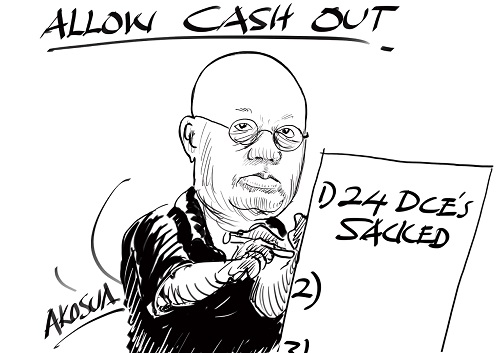
Head of Research at the central bank, Dr. Philip Abradu-Otoo, has decried criticism from sections of the business community following the cedi’s recent appreciation against major trading currencies.
While speaking on a touring assignment at the University of Cape Coast, Dr. Abradu-Otoo revealed that the central bank must carefully manage currency movements to balance economic stability with the sometimes conflicting interests of stakeholders.
For instance, while a stronger cedi is often regarded as beneficial for the wider economy -helping to lower import costs and stabilise inflation – some exporters and businesses argue that it erodes their competitiveness in international markets and cuts into their profit margins.
The BoG official indicated that at the central bank they were surprised when the currency started appreciating and businesses started attacking them.
It is to be recalled that not so long ag the IMF Deputy Managing Director Bo Li urged the central bank to “reduce its footprint in the foreign exchange market” and “allow for greater exchange rate flexibility”.
The World Bank urged the Bank of Ghana (BoG) to avoid excessive foreign exchange (FX) interventions, warning that such actions could disrupt market balance and weaken economic resilience.
In its latest Ghana Economic Update report launched August 14, it emphasised a need for the central bank to allow market forces have greater influence over exchange rate movements.
BOG, in a notice dated August 20 this year (2025), directed commercial banks to immediately suspend payments of foreign currency cash for large corporate clients unless they have matching foreign currency deposits at the Bank of Ghana.
The Bank of Ghana’s command to cease cash payment of forex to large corporations without a matching deposit is a strong directive to restore high-priority forex stability and build financial discipline in the corporate and banking sectors.
The Bank of Ghana is working with stakeholders to re-emphasise the cedi’s legal tender status and discourage foreign currency invoicing for local goods and services. The use of foreign currency in everyday domestic transactions is not only illegal; it also signals a loss of confidence in the cedi, Bank of Ghana Governor Dr. Johnson Pandit Asiama emphasises.
The post Editorial: Allow market forces greater influence over exchange rate! appeared first on The Business & Financial Times.
Read Full Story














Facebook
Twitter
Pinterest
Instagram
Google+
YouTube
LinkedIn
RSS